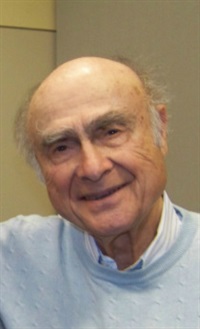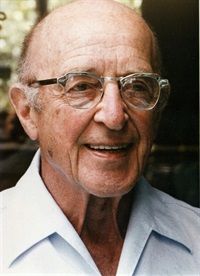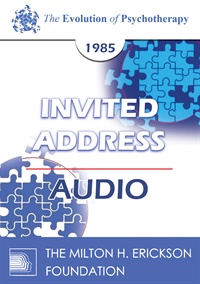EP85 Invited Address 11b - Escape from the Present: Transition and Storyline - Erving Polster, PhD and Carl Rogers, PhD
- Average Rating:
- Not yet rated
- Topic Areas:
- Invited Addresses | Storytelling | Psychotherapy
- Categories:
- Evolution of Psychotherapy | Evolution of Psychotherapy 1985
- Faculty:
- Erving Polster, PhD | Carl Rogers, PhD
- Duration:
- 1 Hour 20 Minutes
- Format:
- Audio Only
- Original Program Date:
- Dec 14, 1985
- License:
- Never Expires.
Description
Description:
With discussant Carl R Rogers, PhD. Moderated by F Theodore Reid, Jr, MD.
Educational Objectives:
- To describe three ways of evoking stories in therapy.
- To name two purposes served by storytelling.
*Sessions may be edited for content and to preserve confidentiality*
Credits
Faculty

Erving Polster, PhD Related Seminars and Products
Erving Polster, Ph.D in clinical psychology, is the Director of The Gestalt Institute of San Diego, and the author of several important books, including Gestalt Therapy Integrated, Every Person's Life is Worth a Novel, and From the Radical Center: The Heart of Gestalt Therapy, as well as dozens of articles and chapters. Erving has authored 6 books. In his current writings, he offers perspectives and designs for a communal application of psychotherapy principles. He also describes and celebrates a powerful contemporary momentum for people-at-large to join together in the search for personal and social enlightenment.

Carl Rogers, PhD Related Seminars and Products
Carl Rogers, Ph.D, was an influential American psychologist and among the founders of the humanistic approach (or client-centered approach) to psychology. Rogers is widely considered to be one of the founding fathers of psychotherapy research and was honored for his pioneering research with the Award for Distinguished Scientific Contributions by the American Psychological Association (APA) in 1956. Carl received his Ph.D. in 1931 from Teachers College, Columbia University. Rogers has served as president of the American Psychological Association, the American Association for Applied Psychology, and the American Academy of Psychotherapists. He is the recepient of eight honorary doctorates and the Humanist of the Year Award from the American Humanist Association. The American Psychological Association offered him two awards: the Distinguished Scientific Contribution award for research in teh field of psychotherapy, and the first Distinguished Professional Contribution Award. Rogers also received the Award of Professional Achievements from the American Board of Professional Psychology. He is the author or co-author of 12 books and numerous articles in psychological, psychiatric, and educational journals dating from 1930.


